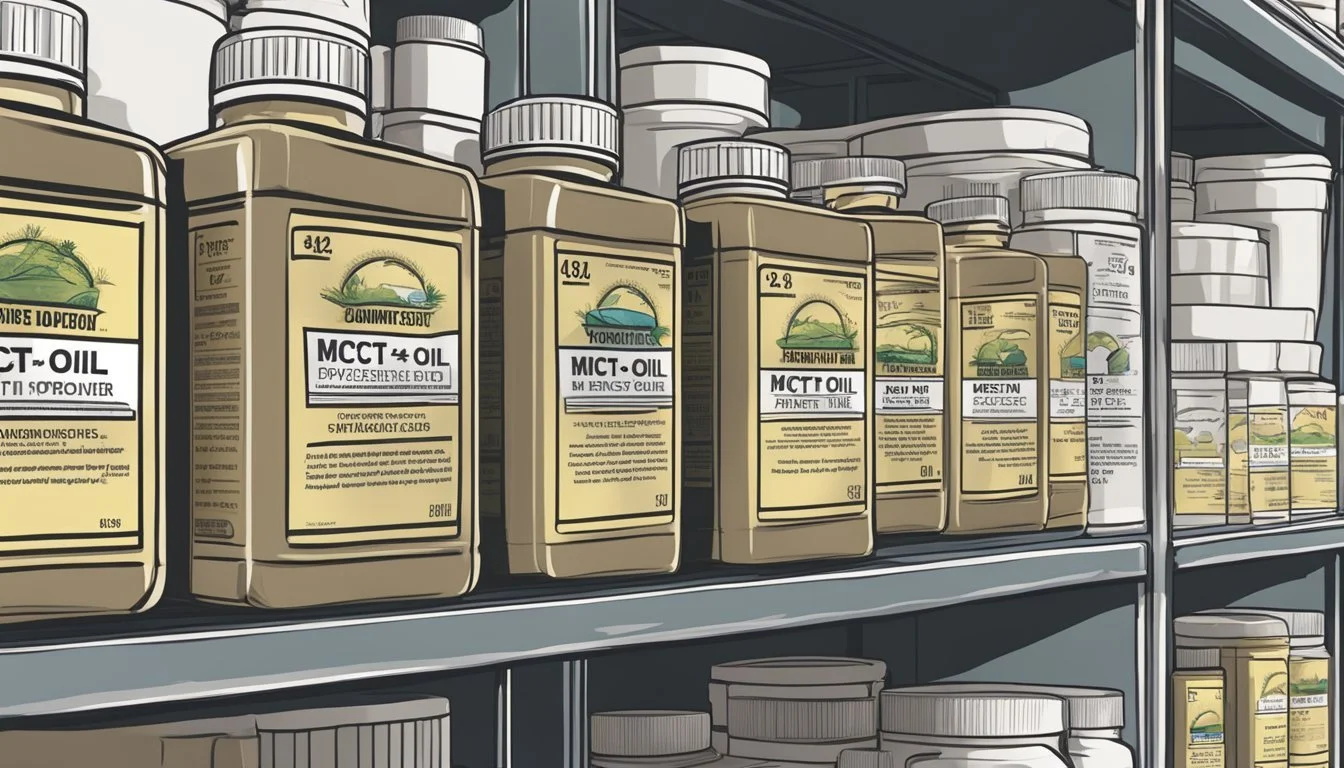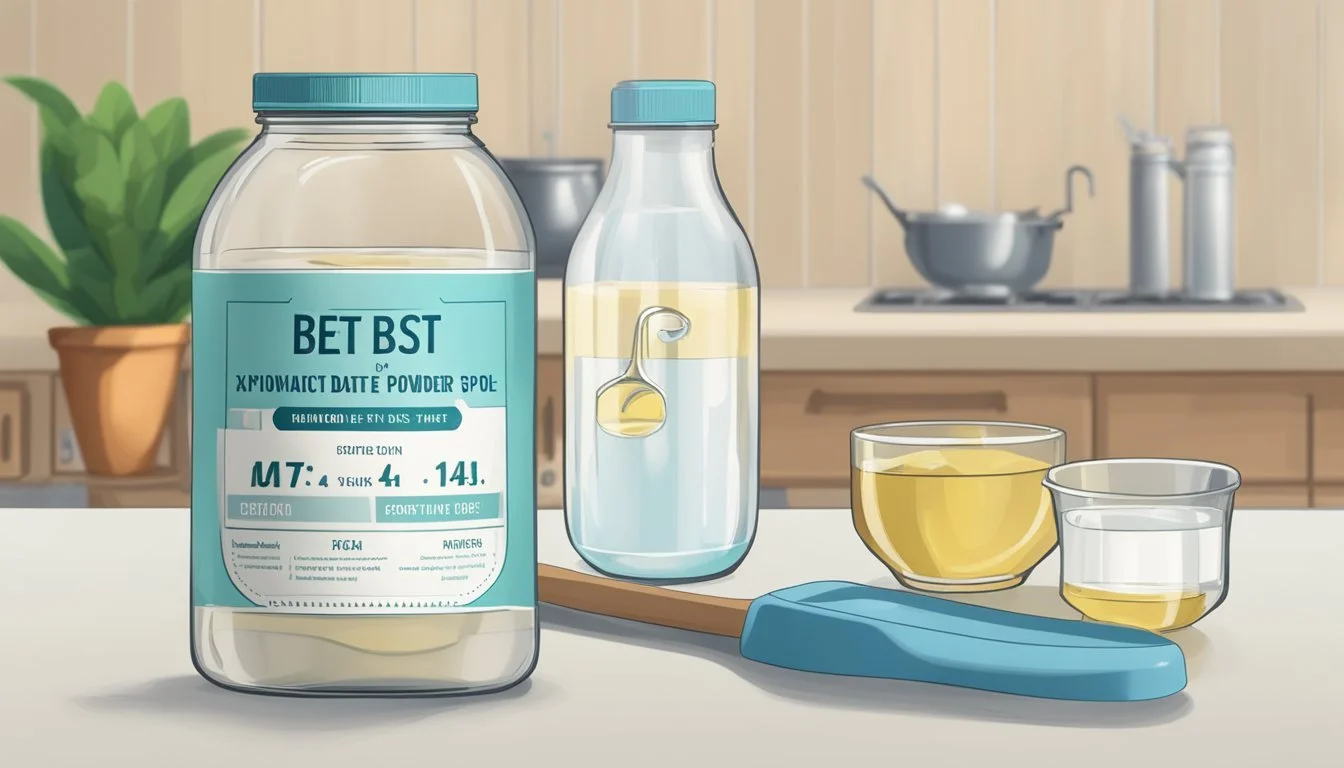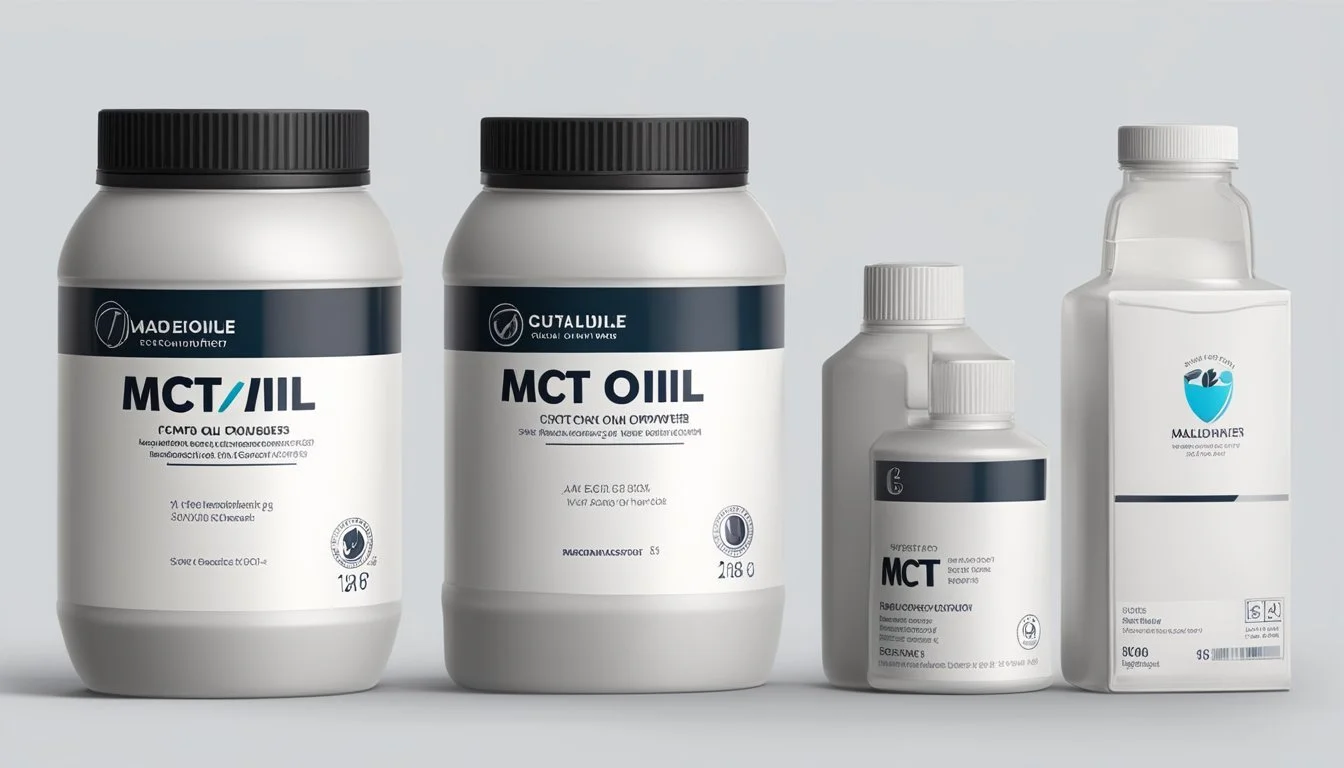How Long Does MCT Oil Powder Last
Shelf Life and Storage Tips
MCT oil powder is a convenient supplement popular among individuals following a ketogenic diet, athletes, and bodybuilders who seek sustained energy, weight loss, and other health benefits associated with medium-chain triglycerides (MCTs). Derived from coconut or palm kernel oils, MCT oil is processed into a powder form for a more versatile and digestible option. This form of MCT is often favored for its ease of use, as it can readily blend into shakes, smoothies, and even baked goods without altering the texture.
The shelf life of MCT oil powder plays a significant role in maintaining its quality and efficacy. Generally, MCT oil powder can last up to a year when stored properly. This timeframe is shorter than its liquid counterpart, which can last up to two years due to the absence of additional ingredients that may be present in the powder form. To ensure the longevity and effectiveness of MCT powder, it should be stored in a cool, dry place, away from direct sunlight.
Proper storage not only prolongs the shelf life but also preserves the integrity of MCT powder, preventing it from turning rancid. A rancid smell, changes in color, or an unusual taste are indicators of spoilage. As a significant element in the ketogenic diet for inducing and maintaining ketosis, the assurance of MCT powder's quality is paramount for those relying on it to bolster their dietary regimen.
Understanding MCT Oil Powder
MCT oil powder is a concentrated form of medium-chain triglycerides derived primarily from coconut oil or palm kernel oil. It's a versatile product favored in ketogenic diets and for its potential health benefits.
Composition and Types
MCT oil powder consists of medium-chain triglycerides that are spray-dried and bound to a carrier such as dietary fiber. The primary types of MCTs include caprylic acid (C8), capric acid (C10), and to a lesser extent lauric acid (C12). Most MCT oil powders favor caprylic and capric acid due to their more rapid absorption and conversion to ketones, substances produced when the body uses fat instead of carbohydrates for energy.
Caprylic Acid: Known for its quick conversion to ketones and support for ketosis.
Capric Acid: Slower to convert to ketones but still beneficial for metabolic health.
Lauric Acid: Often classified as a long-chain fatty acid, lauric acid has different properties compared to C8 and C10.
Health Benefits and Uses
MCT oil powder is praised for its potential to provide quick energy to the body and brain, potentially helping with cognitive function. It's commonly used in ketogenic diets to help induce and maintain ketosis, a state where the body burns fat for fuel, which can be beneficial for weight loss. Additionally, due to its medium-chain fatty acid content, the powder may have applications for heart health by supporting healthy cholesterol levels. There is also some interest in its use for people with diabetes due to its potential to help manage blood sugar levels.
Brain Health: MCTs are thought to be an efficient fuel source for the brain, possibly supporting cognitive function.
Heart Disease: May help in managing cholesterol levels, although more research is needed.
Diabetes: Potential benefits include blood sugar control and improving insulin sensitivity.
Save time and hassle by getting MCT Oil Powder through our quick online ordering process.
Storage and Shelf Life
MCT oil powder has a generous shelf life, largely thanks to its low moisture content. A typical product can last anywhere from one to two years when stored properly. The longevity of MCT oil powder depends highly on storage conditions which can either extend or reduce its quality over time.
Proper Storage Methods
Proper storage can significantly prolong the shelf life of MCT oil powder. This substance should be kept in an airtight container to prevent the incursion of moisture, which could lead to spoilage. Ideally, MCT oil powder belongs in a cool and dry place, such as a pantry or cupboard, away from variables that could accelerate degradation, like heat, light, and air.
Airtight container is only a few simple clicks away when you order online, making your day a little easier.
Impact of Temperature on Stability
Temperature plays a crucial role in the shelf life of MCT oil powder. Extreme temperatures, whether hot or cold, can affect the structural integrity and stability. It is not recommended to refrigerate MCT oil powder as this can cause clumping and spoilage due to condensation. Instead, it's best to store the powder at a consistent, moderate temperature to maintain its quality.
Signs of Spoilage and Rancidity
Visual and olfactory inspection can detect spoilage or rancidity in MCT oil powder. Signs include:
Color changes: Any significant deviation from the original color might indicate spoilage.
Odd smell: A rancid or off-putting odor is a clear sign that the oil powder is no longer suitable for consumption.
Texture: MCT oil powder should remain fine and powdery. Clumping or hardening suggests exposure to moisture or temperature fluctuations.
By adhering to these storage guidelines, one can ensure that MCT oil powder maintains its quality for the duration of its intended shelf life.
Determining Product Quality
When assessing the quality of MCT oil powder, consumers should pay close attention to freshness indicators and conduct a sensory evaluation focusing on color, taste, and smell.
Indicators of Freshness
The freshness of MCT oil powder is paramount for its effectiveness and safety. Consumers can check the product's expiration date as an initial indicator. However, storage conditions heavily influence longevity, and even within shelf life, signs of spoilage may appear. Signs of spoilage include:
Change in consistency — MCT oil powder should maintain a uniform texture without clumps.
Loss of clarity — Fresh MCT oil powder typically exhibits a certain level of translucency or uniform opaqueness without discoloration.
If any of these attributes deviate from the norm, the product's quality might be compromised.
Assessing Color, Taste, and Smell
Evaluating the sensory elements of MCT oil powder can reveal its condition:
Color: MCT oil powder should have a consistent, creamy color. Variations or dark spots may indicate oxidation or contamination.
Taste: Although subjective, the taste should not be unpleasantly sour or bitter. A terrible taste is a clear indication the product is no longer suitable for consumption.
Smell: Fresh MCT oil powder typically has a neutral or slightly sweet odor. An onset of any rancid odor signifies that the oil has gone bad.
The sensory evaluation guides a user in determining the MCT oil powder's current state and if it is advisable to consume the product.
Expiration and Use-By Guidelines
When considering the shelf life of MCT oil powder, understanding the expiration date and how the product changes post-expiration is crucial.
Reading Labels and Expiry Dates
Manufacturers typically provide a best-by date or expiration date on MCT oil powder packaging to indicate when the product will be at its peak quality. An unopened bottle of MCT oil powder, if stored correctly, generally has a shelf life that extends several months past the printed date, while an opened bottle should be used within a shorter time frame due to increased exposure to environmental factors that can lead to degradation. It is important to read labels carefully, as the expiry date can give a more accurate indication of how long the product will maintain its purity before the risk of oxidation and the formation of free radicals increases.
Unopened MCT Oil Powder: Best-by date + several months
Opened MCT Oil Powder: Consume within a recommended period, as per label
Handling and Using Post Expiration
Once past its expiry date, MCT oil powder may not necessarily go bad immediately, but the quality—such as taste or nutritional benefit—could diminish. Signs that MCT oil powder may have gone bad include discoloration, off smell, or a change in texture. It is advised to handle expired products with caution; using expired MCT oil powder can potentially introduce degraded fats into one's diet, which may be less beneficial or, in some cases, harmful. If there is any doubt about the condition of the product, it is safer to discard it to avoid any adverse effects.
Signs of Expired MCT Oil Powder:
Discoloration
Unusual odor
Altered texture
Usage Recommendations
MCT oil powder offers a convenient and adaptable way to integrate medium-chain triglycerides into one's diet, which may promote various health benefits such as balanced cholesterol and blood sugar levels. This section provides guidance on incorporating MCT oil powder into one's diet and optimizing its absorption for maximum benefits.
Incorporating MCT Oil Powder into Diet
MCT (medium-chain triglyceride) oil powder can be seamlessly added to several foods and beverages due to its versatility. A popular choice is to mix it into beverages like tea and coffee, where it can enhance the richness while supplying easily digestible fats. For a non-beverage option, MCT oil powder serves well as an ingredient in salad dressings, contributing to both texture and a healthy fat profile without altering the flavor drastically.
Tea/Coffee: Stir in 1 teaspoon of MCT oil powder into the hot beverage.
Salad Dressing: Combine MCT oil powder to taste with other dressing components.
One should note that since MCT oil powder is a fat source, it should be used in moderation and balanced with other dietary fats. Introducing it gradually allows the body to adjust and can prevent potential digestive discomfort.
Optimizing Absorption and Benefits
For optimal absorption of the triglycerides and nutrients, incorporate MCT oil powder into meals that contain other fat sources, as fats can enhance nutrient absorption. The presence of dietary fat triggers the release of bile, which aids in the digestion and absorption of fat-soluble nutrients.
Cooking: When used in cooking, ensure the temperatures are not too high to preserve the integrity of the oil.
Remember, MCT oil powder may impact blood sugar levels, so monitoring one's responses and adjusting consumption accordingly is crucial. It should also be considered that while MCT oil powder can support cholesterol health, it should be part of an overall balanced diet to achieve the desired benefits.
Frequently Asked Questions
In this section, we'll address common queries regarding the preservation and dietary considerations of MCT oil powder to ensure its longevity and proper use.
Can You Freeze MCT Oil Powder?
Freezing MCT oil powder is generally not recommended. MCT oil powder does not solidify like conventional oils due to its lower molecular weight and chemical structure. Freezing may alter its texture or cause condensation upon thawing, potentially leading to spoilage or reduced effectiveness.
How to Store MCT Oil Powder for Longevity
To extend the shelf life of MCT oil powder, storage should be in a cool, dry place at room temperature, away from direct sunlight and moisture. While refrigeration is not necessary, it can help preserve its quality, especially in warmer climates. Here are storage tips:
Room Temperature: Keep in a sealed container, preferably airtight, to maintain its freshness.
Refrigeration: An option for warmer environments or to potentially extend shelf life beyond the best-by date.
Is MCT Oil Powder Suitable for All Diets?
MCT oil powder is most commonly associated with the ketogenic diet due to its ability to provide easily metabolizable fats, but it can be suitable for various diets. It's important to note that:
Ketogenic Diet: MCT oil powder is a popular supplement for those seeking to maintain ketosis.
Organic and Gut Health: Look for organic labels to ensure natural sourcing if this is a dietary concern.
Epilepsy: Some epilepsy diets utilize MCTs for their potential health benefits.
Natural Food Sources: Those preferring natural sources can derive MCTs from foods like coconut and palm oils.
Supplements: MCT oil powder is considered a supplement and should be used to complement a balanced diet.
It is advisable to consult a healthcare professional before incorporating MCT oil powder into any diet, particularly for those with specific health conditions or dietary restrictions.










